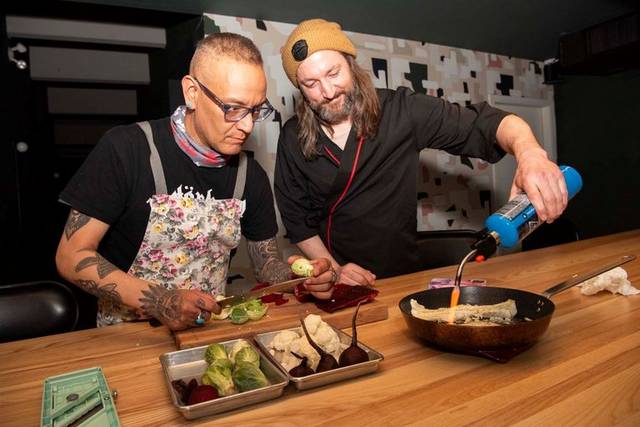In a softly lit dining room in downtown Edmonton, the scent of fire-roasted bison mingles with the earthy aroma of sage and juniper. At the helm of the kitchen is Chef Marissa Cardinal, a 32-year-old culinary innovator whose dishes pay homage to her Cree-Métis heritage. Since opening her restaurant, Red Willow, last year, Cardinal has been making waves by bringing Indigenous flavours into the city’s fine dining sphere.
Cardinal’s menu features a rotating selection of seasonal offerings, from smoked lake trout with cedar-infused broth to wild rice pilaf topped with foraged mushrooms. Each plate tells a story rooted in the land, with ingredients sourced from Indigenous suppliers and local farmers. “For me, it’s about more than taste,” Cardinal explained. “It’s about connection — to culture, to history, to the land itself.”
The chef’s journey began in her grandmother’s kitchen on a northern Alberta reserve, where she learned to prepare bannock, stew, and berry jams. After formal training at the Northern Alberta Institute of Technology, Cardinal worked in high-end kitchens in Vancouver and Toronto before returning home to open her own establishment. “I wanted to prove that Indigenous cuisine belongs in the same conversations as French or Italian fine dining,” she said.
Patrons and critics alike have taken notice. Red Willow was recently named one of Canada’s top new restaurants by EnRoute magazine, praised for its “deep respect for tradition paired with inventive presentation.” The restaurant’s seven-course tasting menu often sells out weeks in advance, with diners eager to experience combinations like elk tartare with spruce tip aioli or saskatoon berry pavlova.
For Cardinal, success has also meant a platform to advocate for Indigenous representation in the culinary industry. She regularly mentors young Indigenous cooks, offering apprenticeships that combine classical technique with traditional knowledge. “We need to see more Indigenous chefs telling their own stories through food,” she said. “It’s not just about what’s on the plate — it’s about who’s cooking it.”
The chef is equally committed to sustainability, using every part of her ingredients and minimizing food waste. Wild game is sourced through ethical hunting partnerships, while herbs and vegetables come from a rooftop garden above the restaurant. “These practices aren’t trends for us,” Cardinal noted. “They’re values that our communities have upheld for generations.”
Looking ahead, Cardinal plans to expand her culinary reach through pop-up events in rural communities and collaborations with other Indigenous chefs across Canada. “There’s so much potential for our food to be shared in a way that honours its origins,” she said. “When someone tastes one of our dishes and feels that connection, that’s when I know we’re doing something right.”
